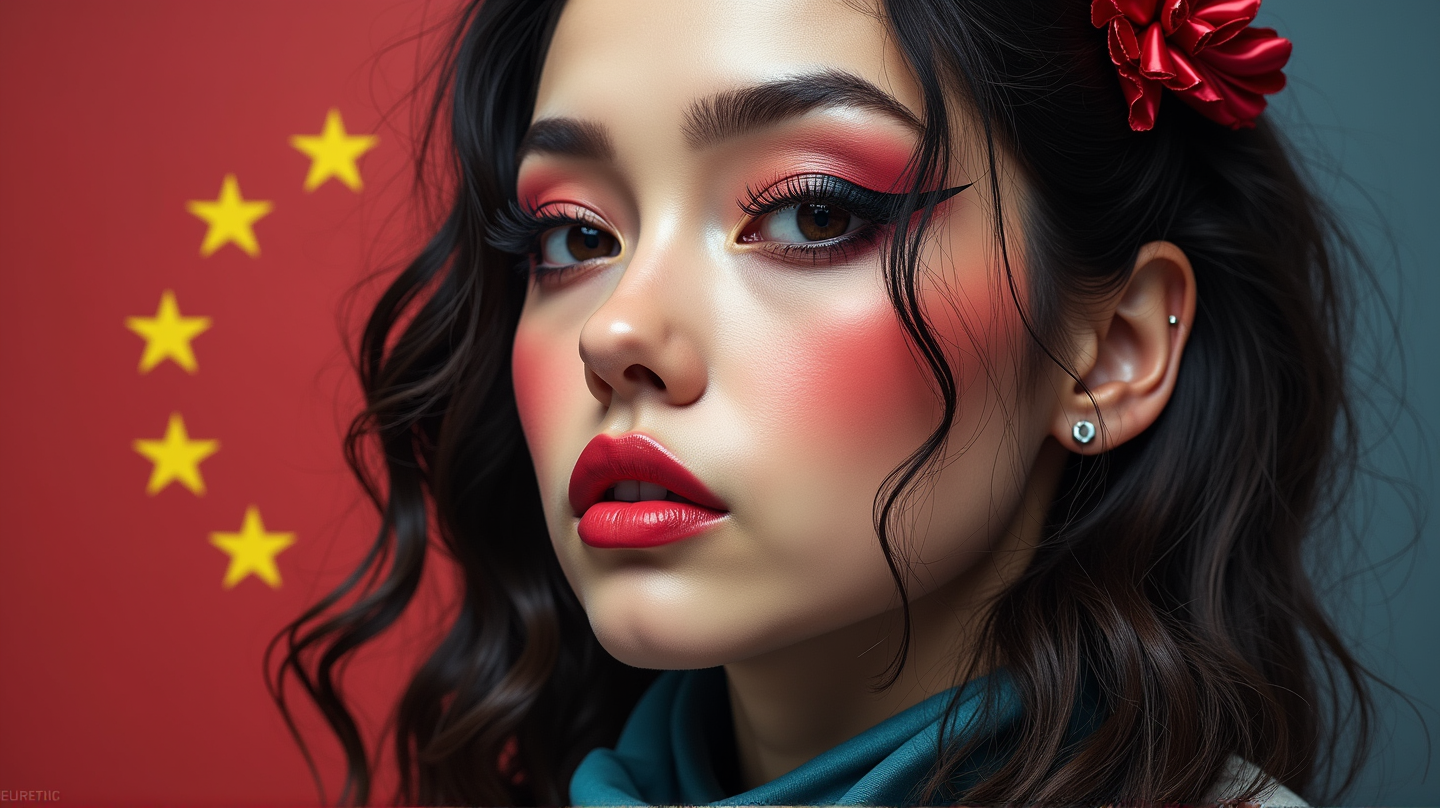In a world where international diplomacy can take unexpected turns, the recent backlash from Chinese social media against US Vice-President J.D. Vance and Press Secretary Karoline Leavitt has added an amusing twist. According to South China Morning Post, the latest wave of critiques comes after the Trump administration’s newly imposed tariffs on Chinese products.
The Eyeliner Saga of Vice-President Vance
Vice-President J.D. Vance’s defense of the tariffs stirred up not just political discourse but also sartorial speculation. The internet was abuzz with rumors of Vance’s ‘smoky’ eyeliner look, a topic that had previously sparked chatter in the U.S. It seems that what was meant to be a firm stance on trade quickly transformed into an eyeliner exposé.
Chinese users rolled out humorous comments, with one witty user suggesting a halt in exporting eyeliner pencils as a form of retaliation. Yet the humor didn’t stop there. The advice on how to perfect the eyeliner for a more “authoritative” look took center stage, blending style tips with satire.
Dress Code Drama with Karoline Leavitt
While Vance faced jabs over personal style, Press Secretary Karoline Leavitt was caught in a web of fashion faux pas accusations. The irony of condemning Chinese imports while donning a Chinese-manufactured dress was not lost on the online community. Labeled as “peasant fashion” by netizens, the choice of attire inadvertently spotlighted the complex relationship between fashion, politics, and economics.
The Economics of Fashion: A Blurred Line
Leavitt’s choice to wear a dress by renowned Malaysian Chinese designer Han Chong for his label Self-Portrait became a flashpoint. The dress, praised for its craftsmanship, became a symbol of the irony between political rhetoric and personal consumption choices. One user humorously noted how the tariffs made buying “expensive made in China” a statement of economic status, turning it into a “catch-your-eye” social media trend.
Hypocrisy or Just Brand Preferences?
Accusations of hypocrisy reached further as more outfits from Leavitt’s wardrobe were scrutinized. These included another Self-Portrait piece, emphasizing the persistent tie between global consumer habits and localized criticisms. The narrative goes beyond simple jabs, highlighting a broader question about the symbolism of fashion in political discourse.
Online Commentary: From Satire to Serious Conversation
While the exchanges might seem lighthearted, they speak volumes about the complexities underpinning international trade relations. The intersection of political policies, personal choices, and cultural exchanges forms an ever-evolving narrative that captures the world’s attention in unexpected ways.
This instance serves as a poignant reminder of the unpredictability and humor inherent in modern politics, and how social media can amplify voices across borders with a mix of satire and sincerity.
